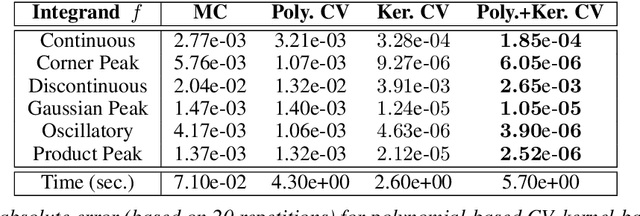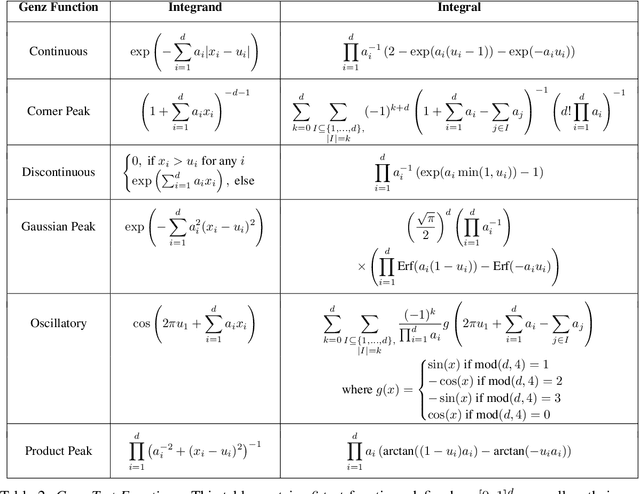Scalable Control Variates for Monte Carlo Methods via Stochastic Optimization
Paper and Code
Jun 12, 2020



Control variates are a well-established tool to reduce the variance of Monte Carlo estimators. However, for large-scale problems including high-dimensional and large-sample settings, their advantages can be outweighed by a substantial computational cost. This paper considers control variates based on Stein operators, presenting a framework that encompasses and generalizes existing approaches that use polynomials, kernels and neural networks. A learning strategy based on minimising a variational objective through stochastic optimization is proposed, leading to scalable and effective control variates. Our results are both empirical, based on a range of test functions and problems in Bayesian inference, and theoretical, based on an analysis of the variance reduction that can be achieved.
 Add to Chrome
Add to Chrome Add to Firefox
Add to Firefox Add to Edge
Add to Edge